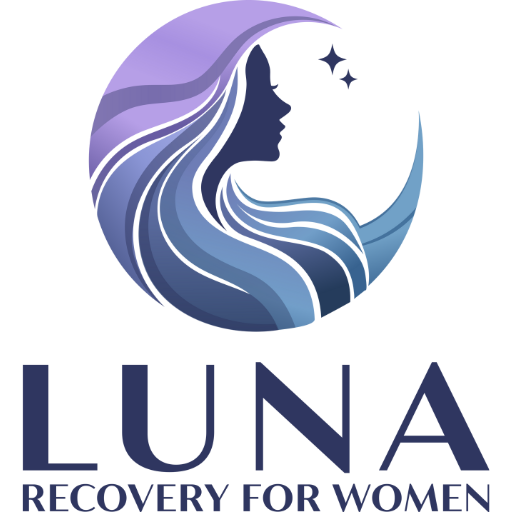The winter months bring shorter days, colder temperatures, and a wave of social gatherings, all of which can contribute to increased alcohol consumption. Whether it’s holiday parties, cozying up with a drink to combat the chill, or trying to manage seasonal blues, many people find themselves reaching for alcohol more often during this time of year. While occasional drinking might seem harmless, it’s essential to recognize how winter conditions can lead to habits that affect your well-being. With mindful choices and the right support, such as the compassionate care offered at Luna Recovery for Women, you can maintain a healthy lifestyle throughout the winter season.
Why Does Alcohol Use Increase in Winter Months?
Several factors contribute to the rise in alcohol consumption during the colder months:
- Seasonal Affective Disorder (SAD): Reduced sunlight in winter can lead to seasonal affective disorder (SAD), a form of depression triggered by seasonal changes. Many individuals turn to alcohol as a way to self-soothe or temporarily lift their mood. However, alcohol is a depressant that can worsen symptoms of SAD over time, making it harder to maintain emotional balance.
- Holiday Socializing: The winter season is packed with celebrations, from Thanksgiving to New Year’s Eve. Alcohol often plays a central role in these gatherings, and social pressure to drink can lead to overindulgence. Whether it’s a holiday toast or a night out with friends, it’s easy to consume more alcohol than intended during these festivities.
- Cold Temperatures and “Warming Up”: On chilly winter nights, some people turn to alcohol to relax and warm up. While a drink might create a temporary sensation of warmth, alcohol actually lowers body temperature and can lead to increased consumption as individuals seek to prolong the comforting effect.
- Boredom and Indoor Time: Shorter days and colder weather often lead to more time spent indoors, which can sometimes result in boredom. Without outdoor activities or social outings, alcohol can become an easy way to pass the time, leading to habits that can be difficult to break.
Effects of Increased Alcohol Use in Winter
While seasonal drinking may seem harmless, frequent alcohol use during winter can have lasting effects on both mental and physical health. Alcohol is a depressant that affects the brain’s chemistry, and using it to cope with winter blues or SAD can worsen mood over time. Although it may provide temporary relief, alcohol ultimately disrupts the brain’s natural ability to regulate emotions, leading to increased feelings of sadness, anxiety, and fatigue.
Physically, excessive alcohol consumption weakens the immune system, making the body more susceptible to common winter illnesses like colds and the flu. It also places strain on the liver and other organs, which can negatively impact overall health.
Additionally, while alcohol might help some people fall asleep faster, it interferes with the body’s natural sleep cycle, reducing the amount of deep, restorative sleep. This disruption often results in poor sleep quality, daytime fatigue, and difficulty concentrating, which can exacerbate symptoms of SAD and other mental health conditions.
Over time, regular alcohol consumption can lead to increased tolerance, meaning larger amounts are needed to achieve the same effects. This increased tolerance raises the risk of dependence, making it more difficult to cut back or quit when desired.
How to Manage Winter Alcohol Consumption

Staying mindful of your alcohol consumption and adopting healthy habits can help you maintain balance during the winter months. Consider these practical strategies:
Setting personal limits can help you stay in control during social gatherings. If you know alcohol will be available, decide on your limits ahead of time. For example, you might choose to alternate alcoholic drinks with water or set a maximum number of drinks for the evening. This approach allows you to enjoy social events without overindulging.
Finding healthy comfort alternatives can provide the warmth and relaxation you’re seeking without the effects of alcohol. Warm beverages like herbal tea, hot chocolate, or spiced cider can be just as comforting on a cold night. These alternatives not only satisfy the desire for a cozy drink but also promote better sleep and overall well-being.
Creating new indoor hobbies can help combat boredom and reduce the temptation to drink. Winter is a great time to explore activities like reading, crafting, cooking, or learning a new skill. Engaging in hobbies that bring you joy can improve your mood and provide a sense of accomplishment, reducing the urge to use alcohol as a source of entertainment.
Focusing on mental and physical health is essential during the winter months. Exercise, even if it’s indoors, can boost endorphins and help combat feelings of sadness or fatigue. Activities like yoga, home workouts, or brisk walks outside can uplift your mood and reduce the desire to drink. Maintaining a healthy diet and getting enough sleep can also support your overall well-being, making it easier to manage stress and cravings.
Seeking support from friends or family can help you stay accountable to your goals. Let those close to you know that you’re trying to manage your drinking, and ask for their encouragement. Having a support system can make it easier to resist social pressure and make healthier choices.
Limiting alcohol availability at home can reduce the temptation to drink impulsively. If alcohol is too easily accessible, it’s more likely to become a go-to solution for boredom or stress. Consider keeping alcohol out of the house or reducing how much you keep on hand to create a healthier environment.
When to Seek Help
If you find it challenging to control your drinking or notice that alcohol is affecting your health, relationships, or daily life, it may be time to seek professional support. Addiction can develop gradually, making it important to recognize early signs such as drinking more than intended, experiencing cravings, or feeling unable to cut back despite wanting to. Seeking help sooner rather than later can prevent alcohol use from becoming a more serious problem.
Luna Recovery for Women Is Here for You

If you’re ready to make a change or need support in managing your alcohol use, Luna Recovery for Women is here to help. We offer flexible outpatient programs that provide compassionate, personalized care tailored to the unique needs of women. Our experienced team understands the challenges that winter months can bring and is dedicated to helping you build healthy, sustainable habits that support long-term well-being.
Our comprehensive programs include therapy, counseling, and practical tools designed to help you manage alcohol use and maintain emotional balance. Whether you’re looking to reduce your drinking or need support for alcohol dependence, our compassionate team is here to guide you every step of the way.
Ready to Take the Next Step? Contact Luna Recovery for Women Today!
If you’re ready to start your journey toward a healthier winter season, reach out to Luna Recovery for Women. Our team is here to provide the support and resources you need to manage alcohol consumption, improve your well-being, and embrace a more balanced lifestyle.
Don’t wait—contact us today to learn more about our programs and take the first step toward a healthier, happier future.


